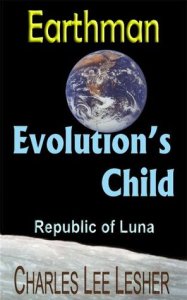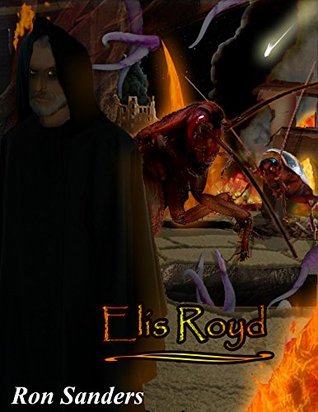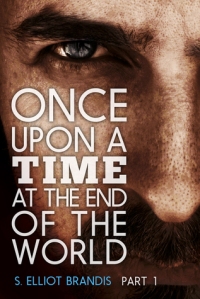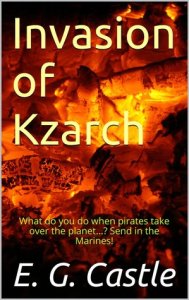One-sentence summary:
A dying-earth novel that is more concerned with its universe’s inner-workings than actually telling a story, Evolution’s Child: Earthman is a mixed-bag that starts off with the breakneck speed of a thriller before morphing into little less than a series of conversation pieces between a growing roster of characters.
Longer Musings:
Evolution’s Child: Earthman starts with a deep-cover analyst, Lazarus, making a speedy escape from his current life on Earth where he lives with a cyborg-surrogate wife and a in conflicted existence. Written in the present tense the scenes unfold as if revealed by the shaky-cam of an expert thriller director. During these moments, and the aid of a helpful narrator, the reader gets to visit a world taken over by fundamentalist groups that hold each other in check by the power of their military might.
Lazarus is heading for The Republic of Luna — a society on the moon that believes in rational thought, science, democracy, and of course, a new strain of capitalism. It’s the perfect world for the emotionally torn Lazarus who has a complicated history of being part spy, part thinker and part expert liar. Conveniently, he also meets Lindsey, a seductive and sexually free woman who happens to be placed next to him so he can embrace his new lifestyle via the power of physical intimacy, and be granted with an audience with the person he needs to see.
Unfortunately, for me, this was the point in the novel where it started to deteriorate. Once the external threat of being captured by his repressive government disappeared, Lazarus had nothing to fear and moved into conversation mode. He talked about Luna’s culture with all those who were willing to speak to him. He made mistakes (because of his primitive mindset) and marvelled at the perfect society Luna was, and how vastly improved it was over his oppressive home world.
That isn’t to say Lazarus is some hillbilly without a charming trait. We learn, by the way of being told by anyone who meets him, that he’s a unique Earthman who’s different than everyone else. This is said to us not just by Lindsey, who makes love to him quicker than a space shuttle can land, but also via almost every other main character. Sure, he may’ve been raised in an oppressive environment, but he also had access to the great literature of the day such as Vonnegut and Homer. Which, naturally, he quotes whenever the moment calls for it.
And nothing happens. Nothing. Page after page after page of world building until the last 8% where an event occurs not because it’s been worked towards, such as in a Tom Clancy novel, but simply because the author decided it was time for a change of pace. So we have another action sequence where Lazarus, despite his obvious limitations in this new environment, gets to show off his heroic side and win the hearts and minds of his new comrades.
By the end of Evolution’s Child: Earthman, the hero has become less complicated human being and more Mary Sue. His warts are smoothed over and the other-side’s faults are highlighted as he steps into the role of glowing champion for the race that needs a little help.
As for the writing, it was solid. It was written in present tense, but with an omnipresent narrator advising us what was happening. There were times when Charles Lee Lesher wrote about future events and what was going to happen which took me out of the story and destroyed any sense of emotional tension in certain scenes. Your mileage, however, may vary. Also, there was a significant amount of head-hopping where the reader would suddenly be told what someone was thinking despite the fact we’d been in another character’s head for 90% of that section. It wasn’t as jarring as the predictions, but they still made me wince. Even more so when it was only to tell me how great Lazarus was once more.
There were two other strange inclusions in the book: hand-drawn pictures of the characters and a timeline about major events. At the start of the novel, there’s a massive info-dump about the history of humanity and what led to the world splitting apart. The section added nothing to the story except to make me flick through a stack of pages so I could get to what I wanted to read: the narrative. And then each chapter started with a picture of a character. I’m not against using pictures in works, however, they have to be at a certain standard. These were not at that standard. They were not the quality an author should be happy with because all they did was detract from the novel. Essentially, these two inclusions made it feel as if Charles Lee Lesher had thrown everything he had into the work so that it was full, instead of choosing what was necessary to propel the tale along.
Overall though, Evolution’s Child: Earthman was competently put together and made for a solid read.
Conclusion
This is one of those novels that I started on a bad foot with because of the info-dump sections and present-tense prediction, but began to enjoy after getting into its rhythm during the chase scenes. Then, just as I commenced liking it, the author stalled the narrative so he could explain how great the main character and the new society he’d created was. By the time the action started again (for no real reason except the text was running out of pages), I’d lost interest and the ending didn’t wrap up any of the main arcs.
As such, I’m on the fence about this work. Halfway through I wanted to read the next book, at the end I didn’t want to read anything in this series again. My recommendation is to read Harmony by Project Itoh or purchase Evolution’s Child: Earthman with cautious optimism.
Books Are Indie



